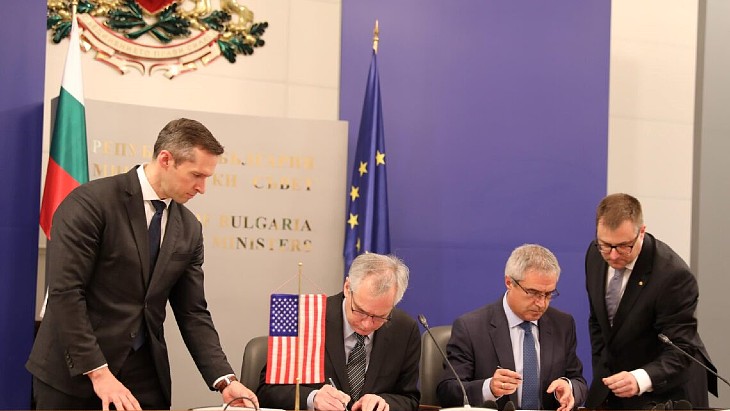The agreement, signed by US Assistant Secretary of Energy for International Affairs Andrew Light and Bulgarian Minister of Energy Rumen Radev, builds on a 2020 memorandum of understanding.
In addition to creating a working group to support plans to design, construct and commission the new units at Kozloduy, the two countries will also "explore collaboration on research and training programmes and developing Bulgaria's nuclear supply chain resilience".
The agreement also proposes the two countries "work together to promote transparency and public awareness as Bulgaria develops civil nuclear energy as a safe, sustainable, and carbon-free source of energy".
Light said: "This agreement will play a vital role in promoting energy security and decarbonisation for Bulgaria and the region. Together, we will support Bulgaria’s efforts to strengthen all aspects of its civil nuclear power programme, including nuclear safety and security, nuclear fuel supply, and nuclear project development."
Radev said: "This agreement is an expression of our shared vision for the development and role of nuclear energy as a key element in achieving the goals of carbon neutrality. For us, a very important aspect is cooperation in the field of training and the exchange of experience, the exchange of personnel and knowledge, and last but not least, the development of a supply chain in which many Bulgarian companies are actively involved."
The Bulgarian News Agency (BTA) quoted Radev as saying: "The financial framework for the construction of units 7 and 8 at Kozloduy should not exceed 14 billion (he did not specify if this is USD or EUR) ... the idea is to implement the project entirely on public funds with up to 25-30% self-financing. The rest is to be loan-financed for part of which State guarantees will be furnished."
Five companies have expressed a formal interest in construction of the two new Westinghouse AP1000 reactors planned for the Kozloduy nuclear power plant. When the decision to move ahead with AP1000 units at Kozloduy was given approval by the country's council of ministers in October, the target date for the completion of the first unit was 2033, with the second unit to follow "two or three years after the first one".
Kozloduy units 1-4 were VVER-440 models which the European Commission had classified as non-upgradeable and Bulgaria agreed to close them during negotiations to join the European Union in 2007. Units 5 and 6 feature VVER-1000 reactors that were connected to the grid in 1987 and 1991, respectively. Both units have been through refurbishment and life extension programmes to enable extension of operation from 30 to 60 years.















